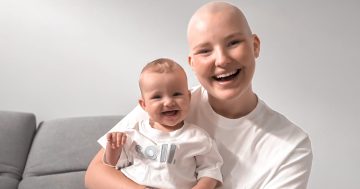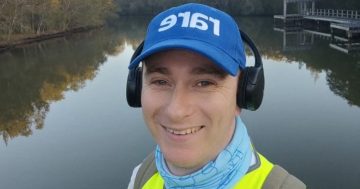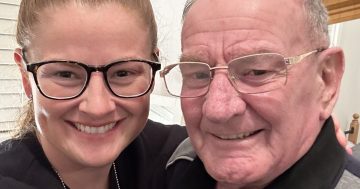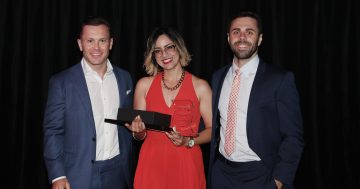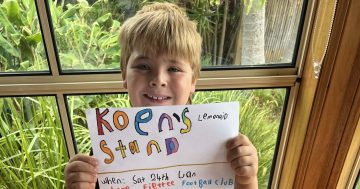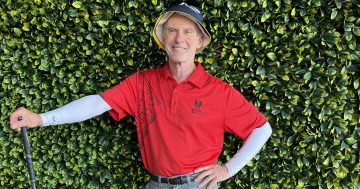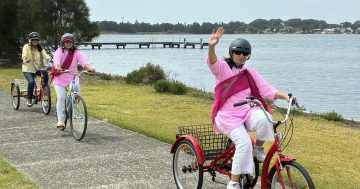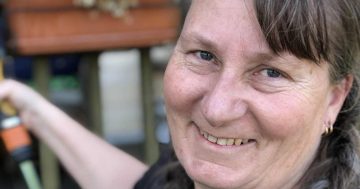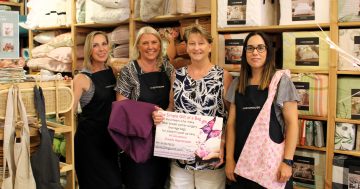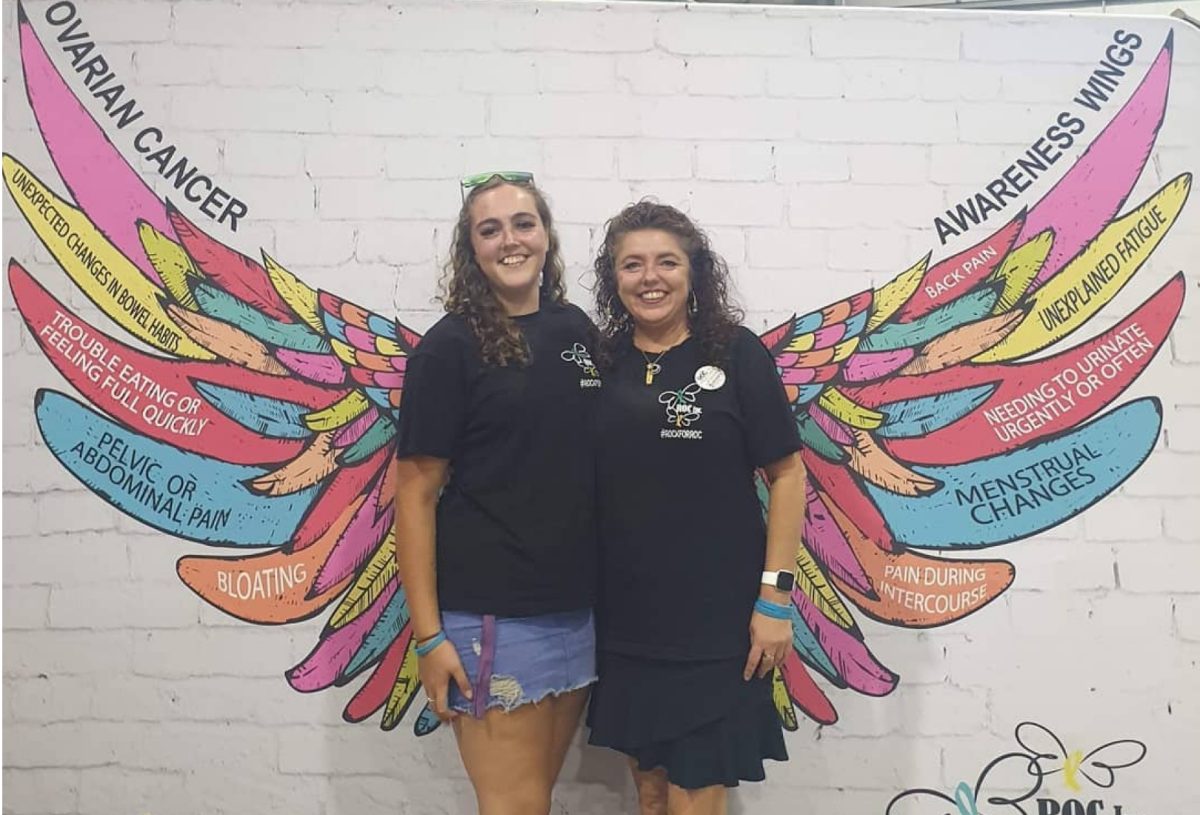
Tasha Armour (right) with daughter Mikayla, who are raising funds for cervical cancer research. Photo: Supplied.
Oak Flats mum Tasha Armour has two passions – her business Incentive Stationery and her foundation Rare Ovarian Cancer Inc (ROC Inc) – and often the two cross over.
Tasha started her business in 1995, but never imagined how it would help support her through one of the most difficult times in her family’s life when in 2016 her then 16-year-old daughter Mikayla was diagnosed with a rare cervical cancer.
“They’re both a passion,” she said.
“I always say that one clothes us, feeds us and pays medical bills, and the other hopefully will eventually save lives, including my daughter’s.”
Incentive Stationery has evolved from selling business stationery from Port Kembla to now running creative workshops, producing wooden serving boards, 3D wooden signs and decorated wine glasses from her Oak Flats home.
“We transitioned into paper and paper crafts in the late 1990s and early 2000s and we were one of the first businesses to bring DIY invitations to the Illawarra,” she said.
“We then started teaching paper crafts, card making and scrapbooking. I guess you have to keep pivoting.”
Tasha said it was the workshops to create wooden serving boards that were most popular now, having run them for six years after transitioning from the Port Kembla premises to an Oak Flats shopfront and now her home.
“When my daughter got diagnosed with rare ovarian cancer at 16, I thought I could cope and in actual fact I couldn’t cope,” she said.
“I moved the business back home but I think in some ways it was meant to happen.
“In some ways, it was a little bit of a saviour because I’m not sure whether I would have had enough oomph to do it while COVID was on.”
Tasha said Mikayla initially underwent surgery for a tumour measuring 25 cm, after first experiencing abdominal bloating, fatigue and missed periods.
“She had a very poor first surgery and they thought it wasn’t cancer going in,” she said.
Tasha said once finally diagnosed, she discovered there was no research for her type of cancer.
Mikayla‘s ovarian cancer, called granulosa cell tumour, has two subtypes – adult granulosa cell tumour (AGCT) and juvenile granulosa cell tumour (JGCT).
“I knew that no research meant no treatment options, so I knew I had to do something,” she said.
“It was either put all that pain and hurt and frustration into legal action or actually create a solution to find the answers.”
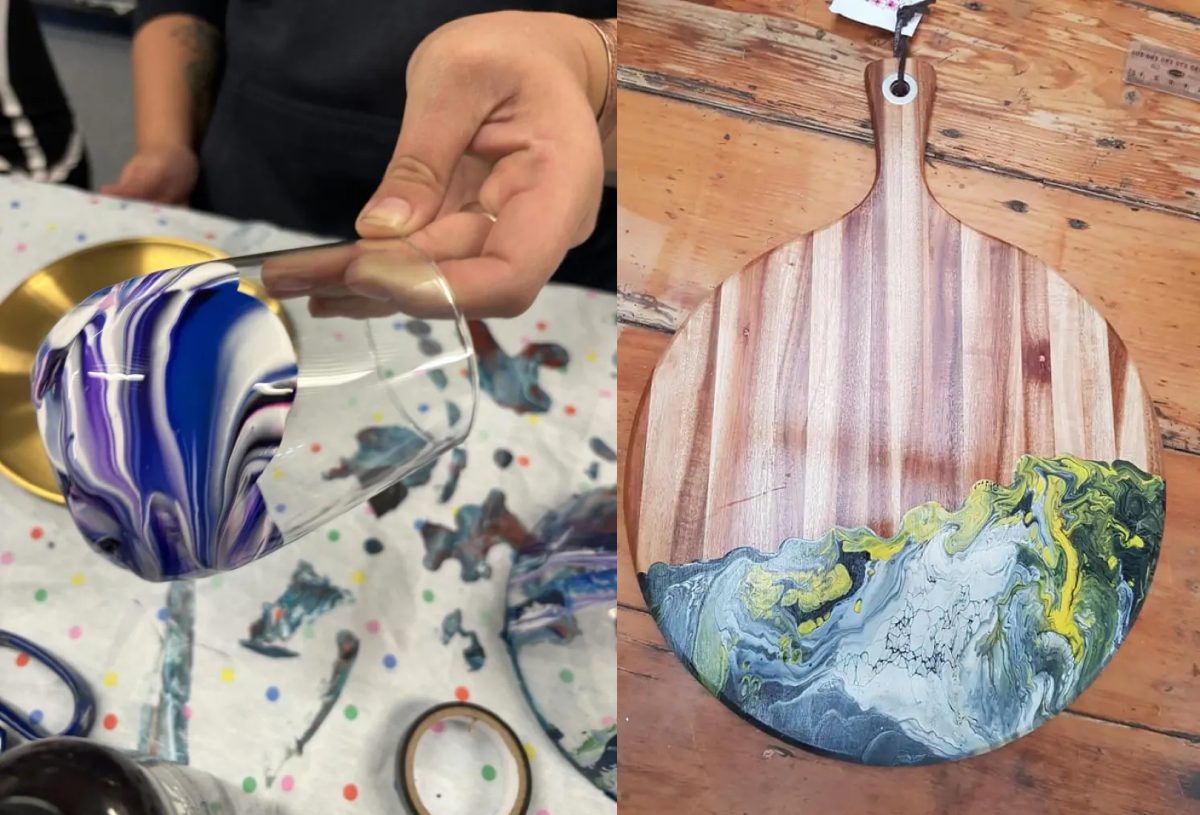
Items created during Incentive Stationery’s hands-on workshops. Photo: Supplied.
She said being a recurrent cancer meant a lifetime of monitoring.
“They don’t ever get a golden tick,” she said.
“No research gives no hope and no answers, so how do you move forward? That was the motivation.”
She said she founded not-for-profit charity ROC Inc in 2018 and initiated the world’s largest and first systematic research for JGCT by partnering with Monash University’s Hudson Institute of Medical Research in Melbourne thanks to business and community fundraising and, in 2020, a one-off government grant.
“I’ve got the rare privilege of being the consumer chief investigator on the research team,” she said.
“When they asked me to do that, I didn’t actually understand exactly what they were asking me to do.”
Tasha said so far there was little research done on adult granulosa, while the Hudson Institute was the only research team in the world researching juvenile granulosa.
She said their work to date had included gaining tumour samples to establish mutations to analyse the pathways that eventuate and discover treatment options.
“The youngest in our research in Australia was diagnosed at 11 months old,” she said.
“The younger ones tend to get diagnosed a little bit quicker, because they establish that there’s something wrong faster, whereas someone in my daughter’s age bracket, where they have a period cycle, often it interrupts the period cycle and the doctors dismiss it.
“They don’t have the most general ovarian cancer marker, neither. Hence why Mikayla, particularly when she went into her first surgery, they were saying it wasn’t cancer.”
When asked how Mikalya was doing now, there was excitement in Tasha’s voice.
“We would class it as NAD or no evidence of disease, so they don’t get remission, and she gets six-monthly checkups,” she said.
“But in exciting news, she just had a little baby.
“We were all thinking the cancer was back but it was a baby. It’s such wonderful news.”
She said her goals now were not only to find a cure and call out for further tumour samples from those diagnosed to help prove the research but move the research to the next stage.
“The more we prove, the more the research group can then apply for government grants, but they tend not to fund fundamental research,” she said.
“So we need to keep raising as much money as we can, to push the research along as far as we can so then the government can support it, and we can do clinical trials.
“There is no real treatment options currently for both adult and juvenile granulosa.”
Tasha said their most recent fundraising initiative was Ride for Research in Victoria, which raised $225,000 and there were future plans for a gala charity ball at the upcoming Crown Plaza Shell Cove.
You can donate to ROC Inc via the website or learn more about Tasha’s workshops at Incentive Stationery.









